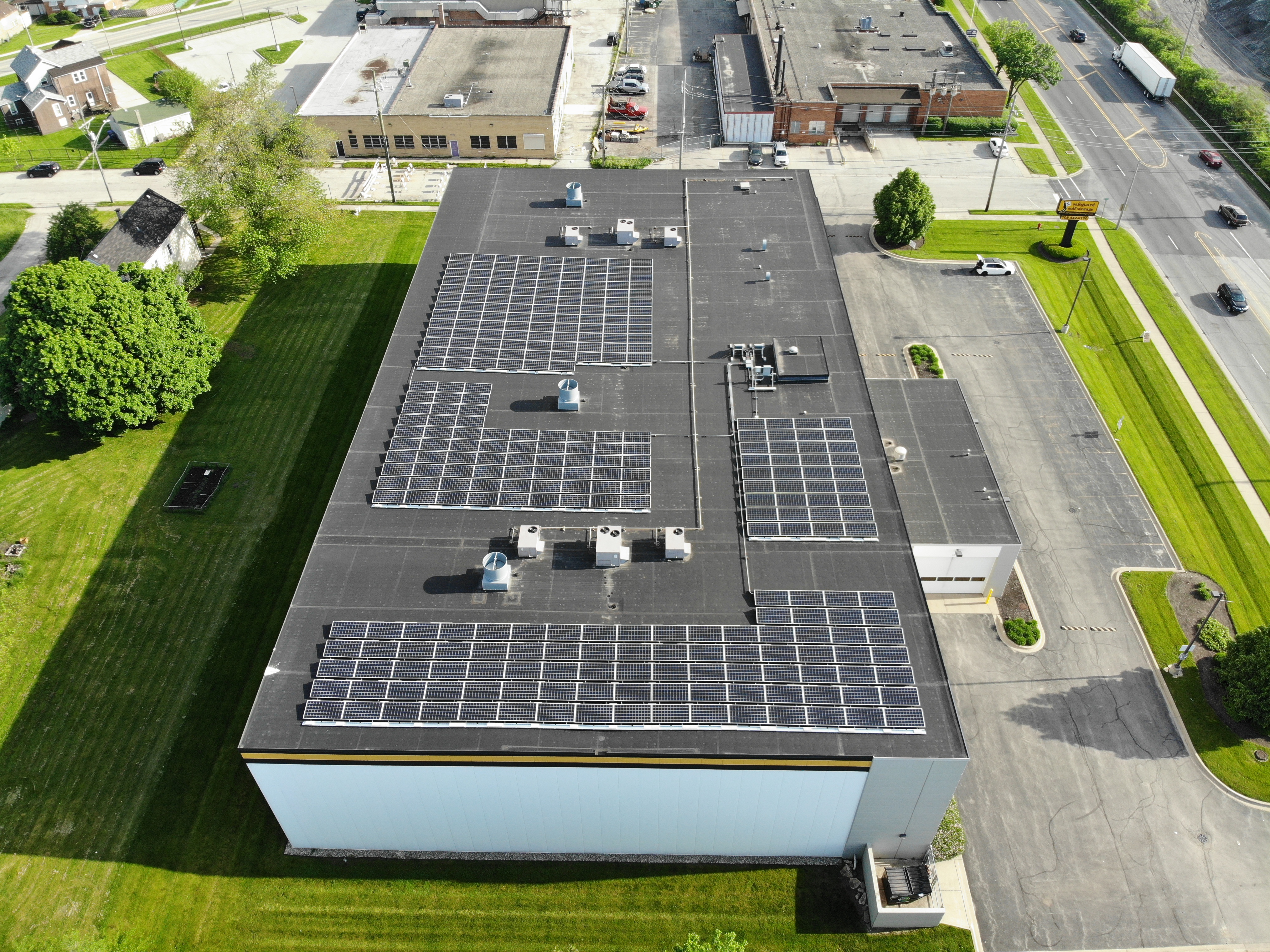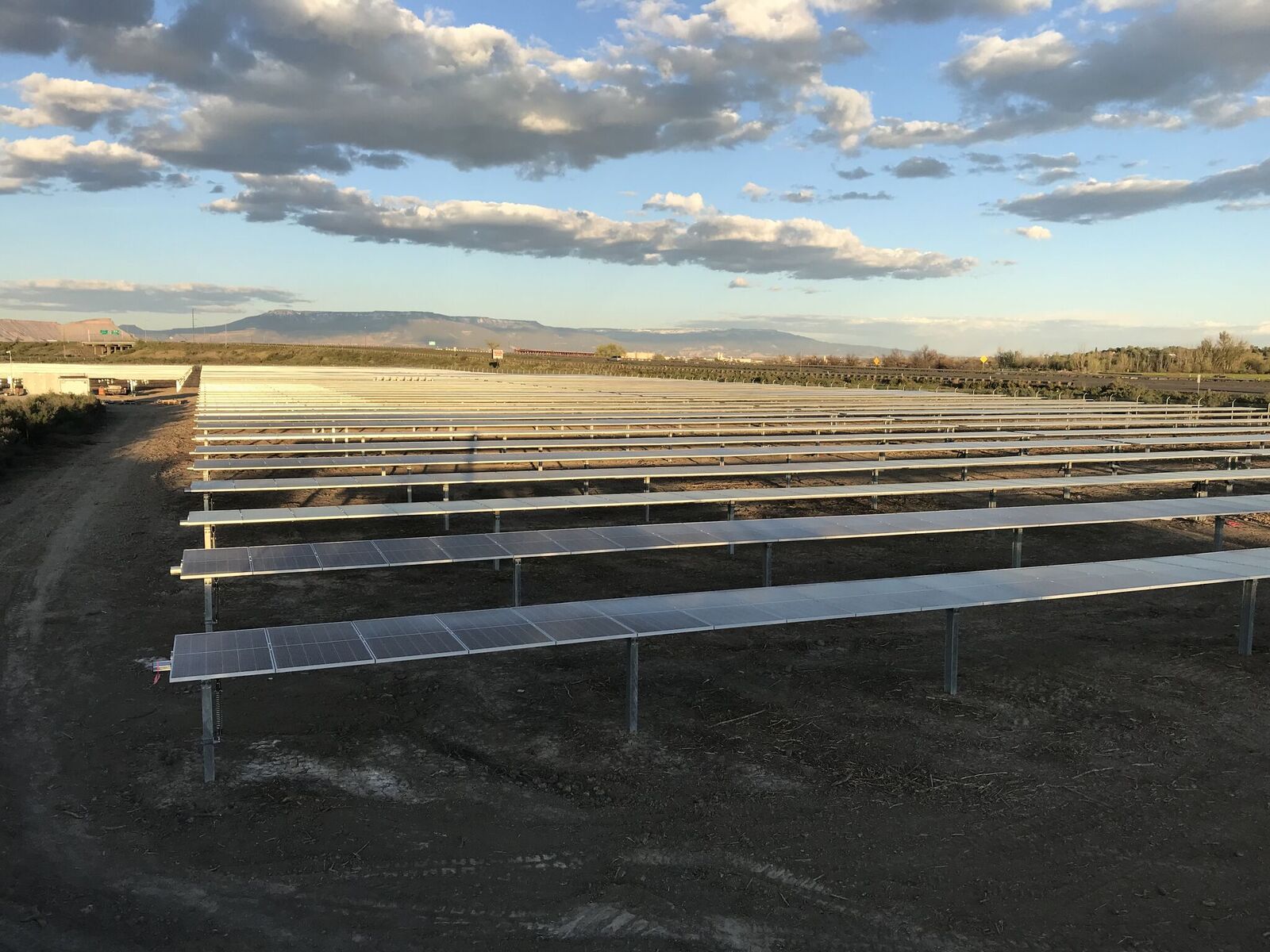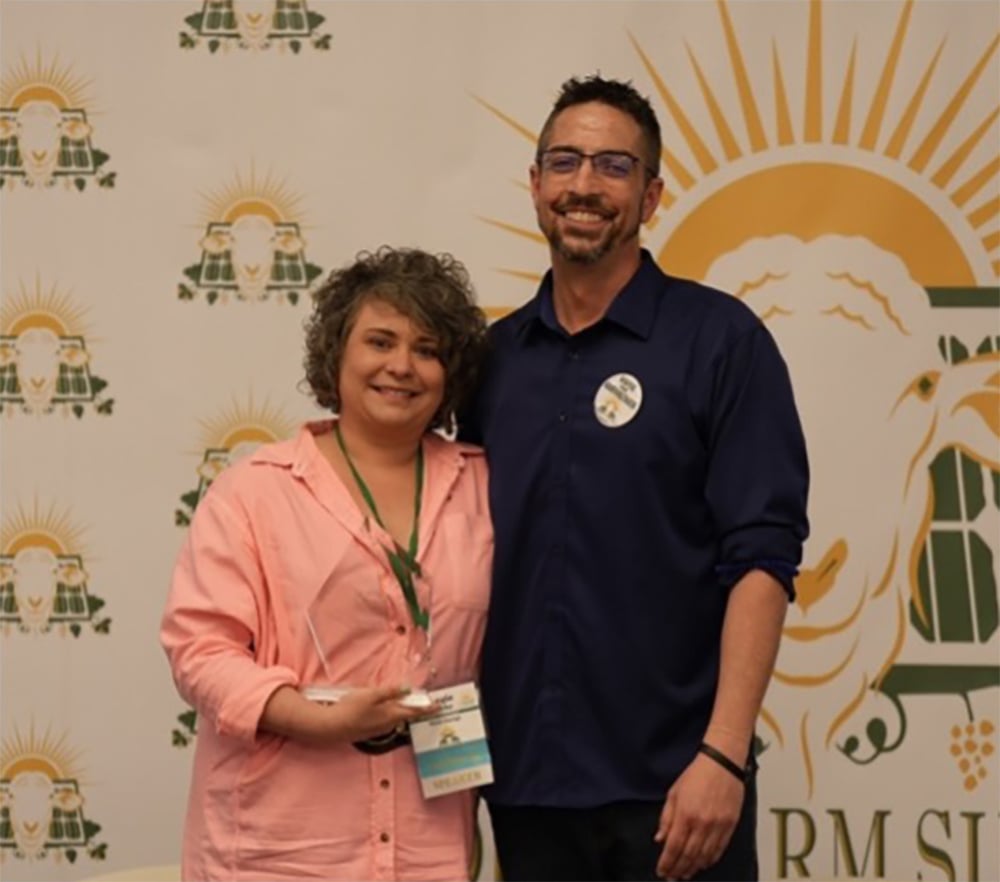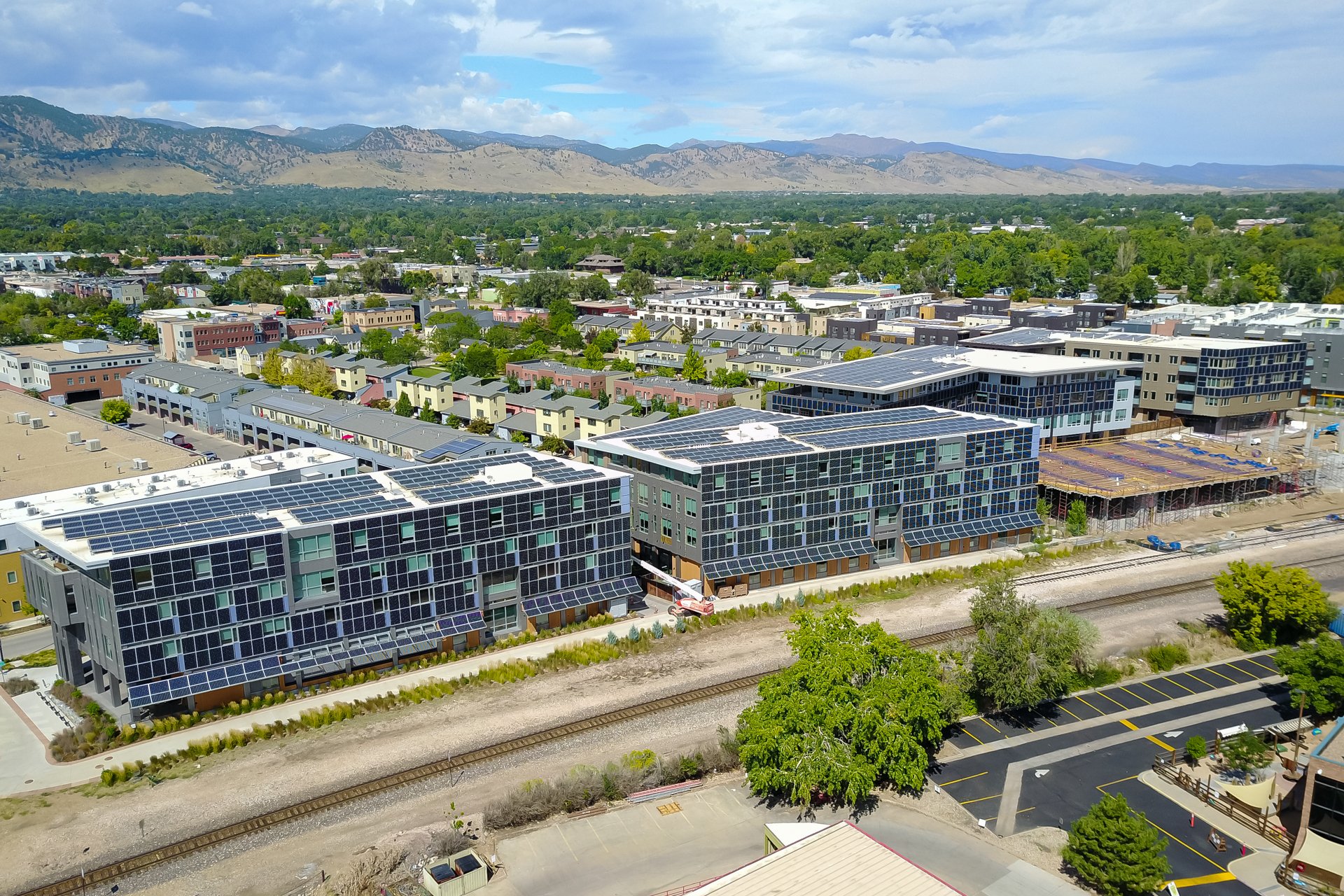Answering Common Questions About Rooftop Solar
February 25, 2022

If you’re considering going solar for the first time, you probably have a lot of questions. When it comes to rooftop solar, it’s important to partner with an experienced solar company knowledgeable of the local area, building codes, and someone with a strong track record of solar development. As a national solar developer, Pivot Energy has encountered just about every question in the book when it comes to rooftop solar installations. Rooftop solar can be a great investment, and a seasoned solar company like Pivot Energy can help determine if rooftop solar is right for your home or business.
What is a rooftop solar PV system?
Rooftop solar panels use photovoltaic technology, sometimes shortened to “PV,” to turn light from the sun into electricity that can power your building or be sent back to the electric grid. As the name suggests, rooftop solar arrays are attached to the roof of your home or business. Importantly, such systems are installed in a way that preserves the integrity of your roof.
Installing a rooftop solar system offers a unique opportunity to be a part of the clean energy transition, producing clean, renewable energy and helping to mitigate the negative impacts of traditional fuel sources. With a rooftop solar system, you can be proud that you’re doing your part in the shift to clean energy.
How are the solar panels attached to my roof?
How solar panels are attached to a roof varies depending on the type of roof in question.
If you have a flat roof, installing rooftop solar does not require any screws or holes in your roof. Instead, ballasted weights secure the rooftop panels and their racking. To provide extra protection for your roof, special sheets can also be placed under the weights to prevent wear on the roof.
When installing solar on metal roofs, specialized clips attach the racking to the roof’s standing seams.
For a pitched roof with shingles, flashing is used to seal any penetrations to the roof, preserving the integrity of the roof and preventing leaks.
Do solar panels void my roof warranty?
No. Rooftop solar will not void your roof warranty. If you have an existing warranty, your solar company will work to align with the roofing manufacturer's protocols to preserve your roof warranty.
Do I need to replace my roof before installing solar panels?
Because rooftop solar panels can last on your roof for 25-30 years, the best time to install solar panels is when your roof is less than five years old. However, our experienced team can investigate any roof and make a recommendation that best serves your unique needs.
Can I replace or repair my roof while the solar panels are up there?
Yes, it is possible to repair or replace your roof when solar panels are installed. The solar industry knows that roof damage happens all the time—whether it’s from curious critters, fallen tree branches, or surprise leaks—so solar panel systems are designed with the need for roof repairs in mind. Many roof repairs can occur with minimal disruption to your rooftop solar system.
If a full replacement of your roof becomes necessary while you already have solar panels installed, your rooftop solar system can simply be removed and then reinstalled on the new roof. Many solar installers and roofers are familiar with this scenario and can help you navigate it.
Can I get a tax credit for installing rooftop solar?
Yes, there are tax credits and other incentives available to reduce the cost of solar installation. Depending on your location, you may have access to many different state tax credits or even incentives from your local utility. But no matter what state you live in, you can take advantage of the federal Investment Tax Credit (ITC) to save some extra money when going solar.
Additionally, certain modifications of your roof itself can also qualify for the tax credit. Installation of a technology called building-integrated photovoltaics (BIPV) turns your roof into a part of the solar system, thus making it qualify for the ITC.
Are solar panels safe if I live in an area with heavy snow, hurricanes, tornadoes, hail, or other extreme weather?
Yes, rooftop solar panel systems can absolutely be safe in areas with severe weather. Solar panels have been safely installed all over the country, from frigid Alaska, to tornado-riddled Kansas, to the hurricane-prone coast of Florida, and everywhere in between. Rooftop solar panels are backed by well-tested technology, durable materials, and an army of engineers, scientists, and construction experts.
Rooftop solar systems are designed in accordance with local building codes and with consideration for the possibility of severe weather events. Whether we’re installing a solar array in the path of Gulf hurricanes or midwestern twisters, safety is our number one priority, and our team is always happy to listen to and address your safety concerns in our construction.
As we continue to see the impacts of climate change, severe weather is becoming more common. Solar developers are equipped and ready to meet this head-on, keeping your solar panels ready to power you for another day through rain, shine, tornado, and everything in between.
If you want extra assurance to help you sleep at night, it’s also a worthwhile (and simple) step to acquire insurance coverage specifically for your solar system. This is a common coverage option these days.
Is a rooftop solar system right for you?
The bottom line is that solar is installed on millions of roofs throughout the US and worldwide. The solar industry has partnered with the roofing sector for decades, working hand in hand to create the best technology and determine best practices. Working with a reputable, experienced company like Pivot Energy can ensure your rooftop solar system is backed by a skilled team, tested technology, and quality materials.
Still Have Questions?
Reach out to the team at Pivot Energy today.


